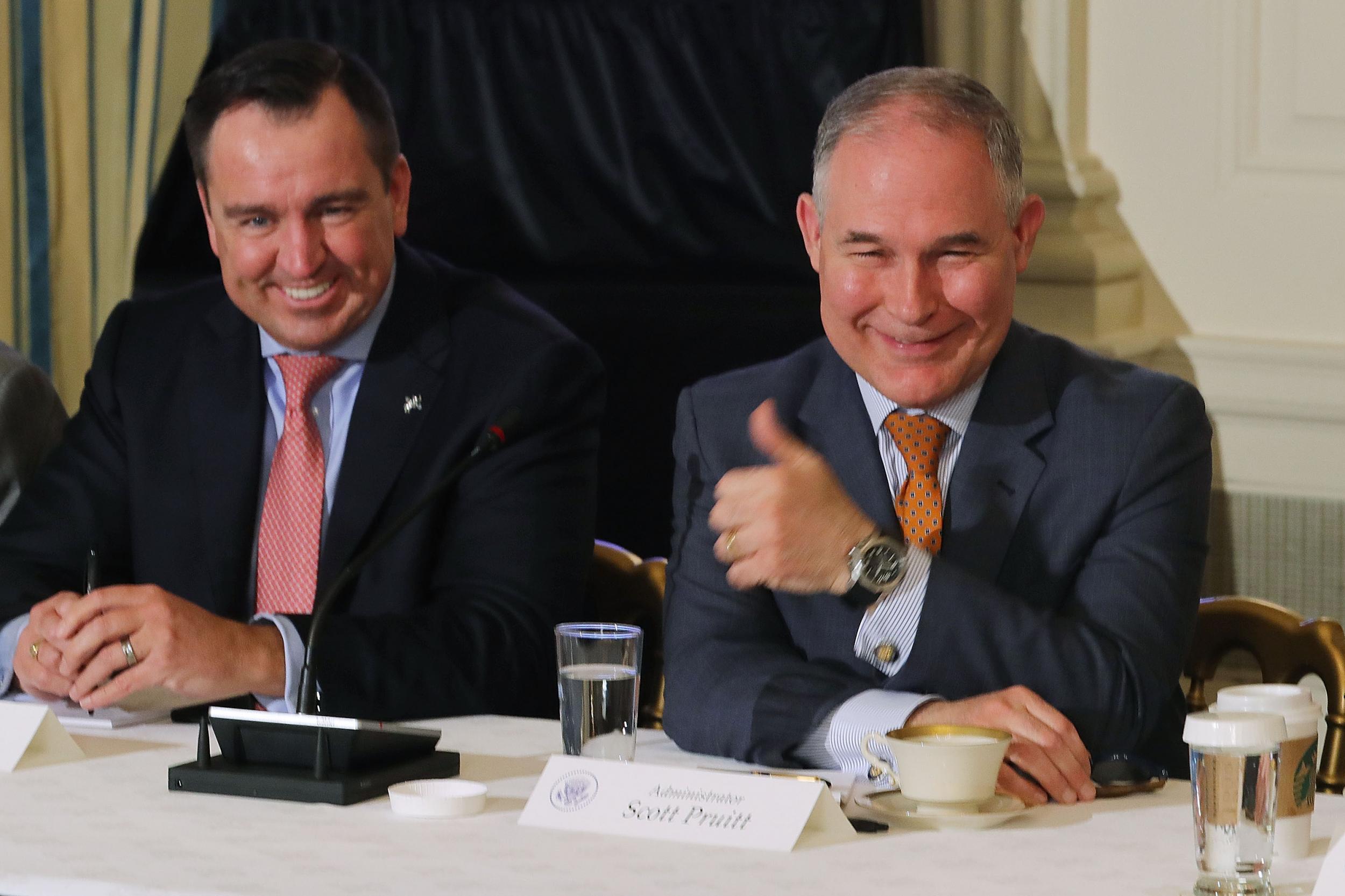An EPA scientific committee hasn’t met in 6 months because of a paperwork error
The EPA is blaming Human Resources for the delay in on-boarding scientists

Your support helps us to tell the story
From reproductive rights to climate change to Big Tech, The Independent is on the ground when the story is developing. Whether it's investigating the financials of Elon Musk's pro-Trump PAC or producing our latest documentary, 'The A Word', which shines a light on the American women fighting for reproductive rights, we know how important it is to parse out the facts from the messaging.
At such a critical moment in US history, we need reporters on the ground. Your donation allows us to keep sending journalists to speak to both sides of the story.
The Independent is trusted by Americans across the entire political spectrum. And unlike many other quality news outlets, we choose not to lock Americans out of our reporting and analysis with paywalls. We believe quality journalism should be available to everyone, paid for by those who can afford it.
Your support makes all the difference.The board of scientists advising the Environmental Protection Agency (EPA) has not met in six months, in part due to a paperwork error.
The 45 members of the group - who last met in August 2017 - evaluate the science the EPA uses to craft policy, per the US Congress - but they have not even had conference calls or any votes on matters since the last meeting since there were not enough of them to reach a quorum.
Michael Honeycutt, who heads the board for the EPA, blamed the delay on human resources bureaucracy in the federal government. He said the official start date for several of the members was 18 February but their paperwork had not been processed.
"They have had to onboard a larger number this time than they have in the past, but the HR people have just been working furiously because there is a lot of paperwork you have to fill out about all your stock holdings, just to make sure they can tell you 'Yes, you can participate in this, but you can't participate in that,'" he told E&E News.
The EPA said a meeting will likely take place in May or June.
But, there is also the matter of politics.
"I guess the Science Advisory Board still exists; I guess I'm still on it...I think the answer is maybe they're giving it what we used to call the 'pocket veto': If you don't meet, then the scientists are not a pain, because they don't have a forum,” William Schlesinger, a biogeochemistry professor at Duke University, told the news outlet.
Scott Pruitt, President Donald Trump’s appointment as EPA administrator, has changed the way advisory committees have operated at the agency during his time at the helm.
Following several scientists whose contracts were either not renewed or who told The Independent they could not be a “prop for bad science” in May 2017, an EPA spokesperson said they would be replaced by those in industry "who understand the impact of regulations on the regulated community".
Scientists who once received research grants from the EPA were told they now have conflicts of interest and were ineligible for continued funding.
Independent academics and researchers said industry counterparts - the kind Mr Pruitt is expected to recruit for the board and subcommittees - are often biased and used to further a particular agenda for the industry they come from rather than providing the EPA with unbiased, holistic advice and analysis.
Dr Robert Richardson, a professor at Michigan State and a former subcommittee chair, told The Independent previously that the EPA's latest actions have "made it political" due to the Trump administration's policies on climate change and the environment.
On several occasions, Mr Trump has called climate a "hoax" perpetrated by the Chinese and has begun the withdrawal of the US from the global Paris Agreement on climate change.
The EPA has also repealed the Clean Power Plan, a signature of the previous Obama administration, which would have reduced carbon emissions from power plants - which make up about 40 per cent of the total emissions by the US - by a third of what they were a decade ago.
Mr Pruitt may also be waiting for September 2018, when several the standard three-year contracts signed by scientists under the previous administration will expire, opening the door for him to fill the void with more industry-aligned experts.
Join our commenting forum
Join thought-provoking conversations, follow other Independent readers and see their replies
Comments